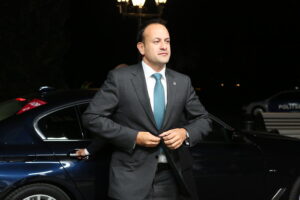Maya Dhillon
Ireland has voted against proposed changes to the country’s constitution to remove outdated language about the role of women and family models.
On 8th March, International Women’s Day, citizens across Ireland headed to the polls to vote on a double referendum put forward by the coalition government.
The proposed Family Amendment and Care Amendment would remove language suggesting that only married couples constitute a ‘family’ and that women should not neglect their “duties of the home.”
Ireland’s Taoiseach, or prime minister, Leo Varadkar, said: “As head of government and on behalf of the government, we accept responsibility for the result.
“It was our responsibility to convince the majority of people to vote ‘Yes’ and we clearly failed to do so.”
How Did Ireland Vote?
Varadkar, and all major political parties, supported a ‘yes/yes’ vote, voting in favour to reject both constitutional amendments.
However, Ireland voted for a landslide ‘no/no’ result.
The Family Amendment was defeated with 67.7 per cent voting ‘no,’ and the Care Amendment was rejected by 73.9 per cent of voters.
The turnout was one of the lowest in recent Irish referendum history, at only 44.4 per cent.
In comparison, the 2018 referendum on abortion law had a 64.1 per cent turnout, and the 2015 referendum that saw same-sex marriage legalised saw a 60.1 per cent voter turnout.
What Is The Family Amendment?
The first proposed amendment would redefine the concept of ‘family’ in the constitution.
The relevant article only recognises the family unit as one tied to the institution of marriage.
The proposed change would have allowed the State to acknowledge family units either: “founded on marriage or on other durable relationships.”
The government says it wants to recognise that all families are equal, including those who were unmarried or single-parent families.
Opponents to the Family Amendment said that “durable relationships” was too vague and could lead to future complications in family court cases.
Former Tánaiste, deputy prime minister, Senator Michael McDowell had consistently voiced his disagreement with the proposal. He suggested that the legal implications could greatly cost taxpayers.
Between appeals etc, how many decades will it take for a reasonable body of jurisprudence on "other durable relationships" to be established. And at what cost, to the taxpayer and the people forced in those actions #VoteNoNo
— Michael McDowell (@SenatorMcDowell) March 8, 2024
What Is The Care Amendment?
The second part of the referendum sought to remove outdated language referring to the role of women in the family home.
The constitution currently states that a woman’s life in the home supports the State which benefits the “common good.” It says that mothers should not neglect their duties in the house in favour of having a job.
The proposed amendment would say that the provision of care in the home be carried out by “members of a family” rather than the more explicit ‘mother.’
Supporters of the amendment argued that the antiquated values had no place in modern society.
The National Women’s Council urged people to vote ‘yes’, re-enacting historical protests and highlighting how discriminatory the wording had been to women in the past.
Director Orla O’Conner said: “It was at the heart of cruel, discriminatory policies, such as the marriage bar, which forced women out of their careers once they got married.
“They had to curtail their dreams and ambitions and many are still facing inadequate pensions and income in older age because of it.”

However, disability activists expressed concern that the wording of the amendment would shift the responsibility of care away from the State and towards family members.
This followed a comment by Varadkar earlier this month on the Six O’Clock Show where he appeared to say that care should not be the responsibility of the State.
He has since said that he believes both people and the State have care responsibilities.
Why Did Ireland Reject The Amendments?
Polls on the morning of the referendum showed that ‘yes-yes’ had a sizeable lead.
However, it was an embarrassing defeat for Varadkar and the coalition government.
Further criticism towards the Taoiseach suggested that he held a tokenistic vote.
A Green Party source implied that Varadkar insisted on the referendum to coincide with International Women’s Day.
Had he held the votes in June, in line with both local and European elections, there would have been more time to explain the constitutional amendments to voters.
READ NEXT:
-
RECENTLY ENACTED NORTHERN IRELAND TROUBLES ACT FACES OPPOSITION
-
FREE COURT TRANSCRIPTS FOR SEXUAL ASSAULT SURVIVORS IN SCOTLAND
-
RACIST MISINFORMATION SPREAD DURING AUSTRALIA’S VOICE TO PARLIAMENT REFERENDUM
Featured image courtesy of EU2017EE via Flickr. No changes were made to this image. Image license found here.

